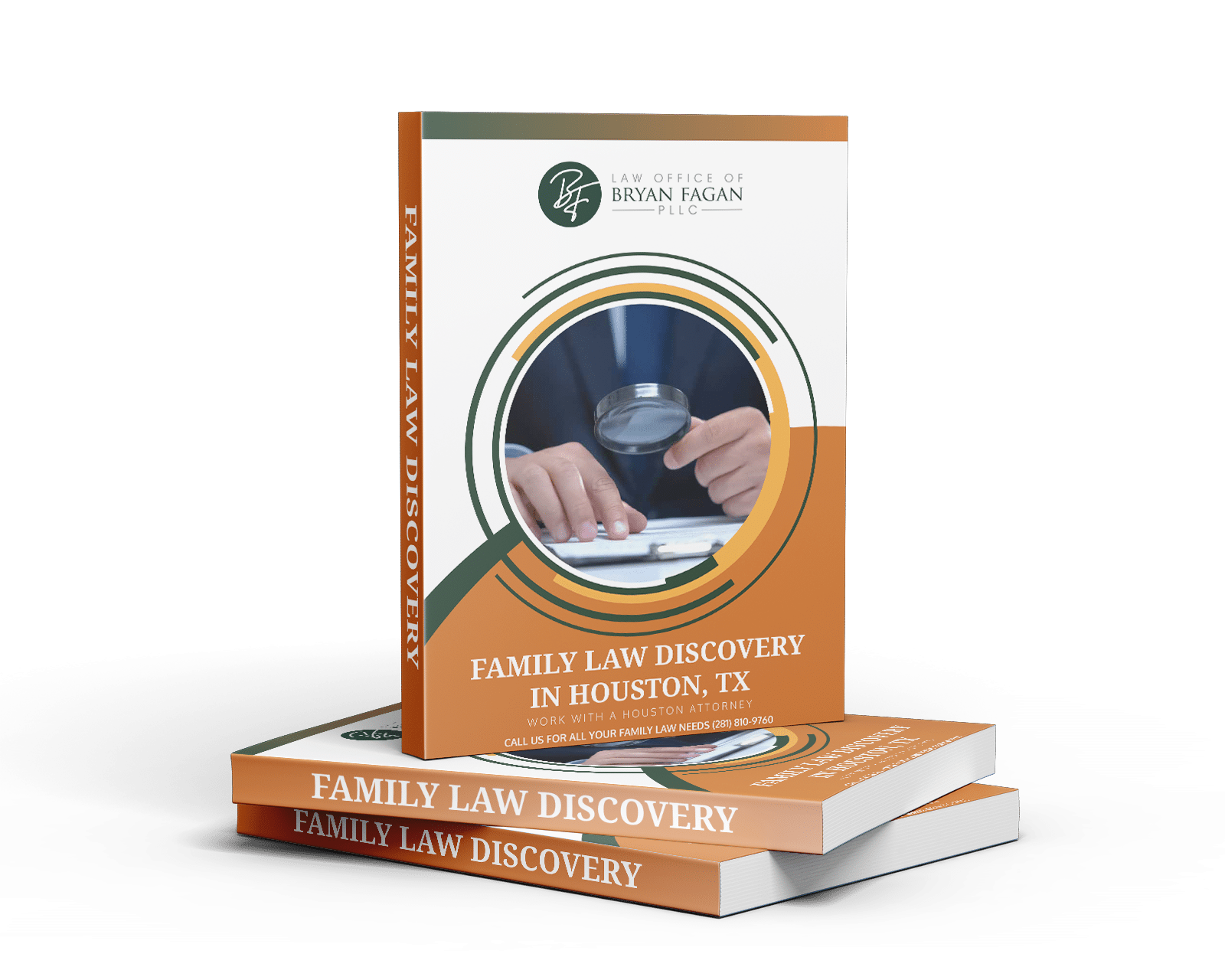
If you’re wondering, “Why isn’t property division in a Texas divorce always equal?” you’re definitely not alone. Navigating a divorce in the Lone Star State can feel like wandering through a complicated maze, especially when it comes to the equitable division of property. But don’t worry! We’re here to shed light on this complex issue and explain the reasons behind the unequal distribution of assets.
Exploring the Equity in Texas Divorce Property Division
The Principle of Fairness: Understanding Equitable Distribution
Divorce in Texas: Claiming Your Share, Protecting Your Future! encapsulates the journey into the complexities of property division in Texas divorces, where the foundational “just and right” principle shines as a beacon of Texas divorce law. This principle champions the equitable distribution of marital assets over a simplistic equal split, tailoring the division process to the unique circumstances and needs of each divorcing couple. It’s this guiding principle that shapes the division process, ensuring an overarching emphasis on fairness and justice, crucial for those navigating through the intricacies of claiming their share and securing their future in a Texas divorce.
The Role of the Texas Family Code in Equitable Division
The Texas Family Code plays a central role in orchestrating the equitable division of the marital estate. It provides the legal framework that dictates how assets should be divided fairly in a divorce settlement. It grants the courts the mandate to arbitrate the division of community property following factors, particularly when mutual agreement eludes a couple. Under the Texas Family Code (Sections 7.001 to 7.007), judges are responsible for ensuring that asset distribution is equitable. They do this by considering a variety of factors presented during the legal process, as determined by the court.
Deciphering “Just and Right” in Asset Division
Achieving a “just and right” asset division demands from the court a meticulous evaluation of crucial aspects such as financial health, contributions to the marriage, age, health, earning power health, and abilities of each spouse, alongside child welfare and each party’s prospective financial stability. Furthermore, the family court judge assesses the origin and acquisition mode of the property to ascertain whether an equal split truly aligns with fairness principles. This thorough scrutiny, coupled with the requisite for complete financial transparency from the family court judge and both partners, enables a judicious court decision that embodies the equity principles championed by the Texas Family Code.
The process of dividing marital assets, especially when involving high-value investments, real estate, and business interests, underscores the complexity of achieving equitable division. This complexity accentuates the necessity for adept legal representation, proficient in navigating the subtleties of Texas divorce law, to secure a division outcome that, although not uniformly equal, is profoundly equitable and mindful of each divorce scenario’s unique contours.
Fairness in Focus: The “Just and Right” Principle at Work

Thus, the principle of “just and right” goes beyond simply being a legal doctrine, embodying the sophisticated approach of Texas family law aimed at infusing fairness and justice into the distribution of marital assets. Texas divorce and family law meticulously examines the unique details of each case to make equitable decisions.
These decisions consider a wide range of factors affecting the lives and futures of those involved, ensuring the property division in divorce decrees reflects a deep understanding of equity and justice. Rooted in the Texas Family Code, this detailed approach underscores the state’s commitment to fairness, affirming that judges carry out property division in divorces to meet the diverse needs and circumstances of all parties involved.
This comprehensive method highlights the focus of family law on fairness and equity, prioritizing these over simple numerical equality.
Unpacking Property Division in Texas Divorces: A Closer Look at Equity vs. Equality
Understanding the Foundations of Asset Division
In Texas, navigating the division of assets during a divorce involves a detailed understanding of what divides community property versus separate property, underscored by the Texas Family Code’s Sections 7.001 to 7.007. This legislation advocates for an equitable distribution approach, deviating from a mere equal split to ensure that asset division is “just and right.” This strategy aims to tailor the marital estate division process to the unique situations certain circumstances and requirements of the divorcing parties, emphasizing fairness as a pivotal consideration.
The Essence of Community Property
Under Texas law, community property encompasses all assets and debts accumulated by either spouse throughout the marriage. This category more property broadly includes real estate, personal belongings, financial accounts, certain retirement plans, and employment benefits. The guiding philosophy behind the community property regime is to prevent post-divorce financial hardships, ensure a fair division of assets, and honor the mutual agreements and contributions made by each spouse during the marriage.
Delineating Separate Property
In contrast to real property, separate property includes assets a spouse owned before the marriage or acquired during the marriage through gifts, inheritance, or personal injury recoveries. However, these assets must be kept separate from marital property to retain their distinct status. Establishing an asset as separate from marital real property often requires clear and convincing evidence, often involving a complex tracing process to confirm its origins. This critical distinction safeguards individual rights and interests during the asset division phase.
Challenges of Co-Mingled Assets
The division process becomes significantly more complex when separate assets and community property mix. This often happens when inheritances or gifts get deposited into joint accounts or are used for marital expenses. Effectively navigating these complexities is essential for achieving an equitable division that accurately reflects each party and spouse’s contributions, and circumstances.
Specialized Legal Assistance for Diverse Division Scenarios
The Law Office of Bryan Fagan, PLLC, excels in navigating the complex legal landscape of marital property and just and right division, offering tailored assistance for a range of scenarios, including high-asset divorces and the just and right division of retirement and employment benefits. Our expertise is crucial for protecting separate property rights, accurately characterizing marital property, and ensuring a just and right division that adheres to the “just and right” principle.
Given the intricate legal framework aiming for fairness and equity in Texas divorces, Why isn’t property division in Texas divorce always equal? The answer lies in the legal system’s dedication to a division that is equitable, taking into account the diverse factors that uniquely impact each case. By relying on the Texas Family Code’s guiding principles and skilled legal representation, individuals facing divorce can confidently tackle these complexities, ensuring the property division outcome is as equitable and just as possible.
The Principles Guiding Property Division
Is Money Received in Property Distribution Taxable in Texas?
This question becomes pertinent when exploring the landscape of Texas divorces, which the Texas Family Code, specifically Sections 7.001 to 7.007, governs. This legal framework shifts from a simple equal division to favor an equitable distribution of marital assets. The “just and right” approach tailors the division of marital assets to the specific nuances of each divorce case, placing a strong emphasis on fairness and individualized consideration to ensure that the division aligns with the unique circumstances of the parties involved.
Community vs. Separate Property: A Fundamental Distinction
The division of assets in Texas hinges on the crucial distinction between community property state and separate property. Community property encompasses all assets and debts acquired by spouses during their marriage, earmarked for division under the state’s equitable distribution guidelines. Conversely, separate property includes assets owned before the marriage or acquired by one spouse during the marriage through gifts, inheritance, or as recovery for personal injuries. Typically, the original owner retains separate property, assuming it remains distinct from marital assets.
Complexities Arising from Mixed Property and Marital Debts
Challenges in property division often emerge when those considered separate property and community property become intertwined, leading to mixed property issues. This complexity arises from actions like depositing an inheritance into separate debt or a joint account or utilizing separate property towards marital expenses, which can blur the lines between the two property types.
Additionally, the dissipation of assets, whether through reckless spending or intentional conveyance, complicates the equitable distribution of the divided property process. Marital debts introduce another layer of complexity, with Texas law designating debts from contractual obligations or tortious acts incurred during the marriage as considered separate property debt and community property state as liabilities, potentially affecting the division outcome.

Retirement Accounts and Pensions: Special Considerations
The division of retirement assets, accounts, and pensions presents unique challenges. Assets valued at the time of marriage are classified as separate property, separate from community property acquired afterward. However, any increase in the value of separate assets during the marriage generally becomes community property. To ensure fair distribution of retirement assets, the division often employs mechanisms like the Qualified Domestic Relations Order (QDRO), which delineates both parties’ shares of retirement assets, funds, and benefits accurately.
The Imperative for Skilled Legal Representation
Given the complex legal terrain of property division in Texas divorces, securing expert legal representation is crucial. Skilled attorneys are essential for navigating mixed property issues, addressing marital debts, and achieving equitable division of assets, including retirement accounts and pensions. The Law Office of Bryan Fagan, PLLC, offers comprehensive expertise across a broad spectrum of property division scenarios, ensuring that the division aligns with the equitable principles mandated by Texas law.
Why Isn’t Property Division in Texas Divorce Always Equal?
The equitable distribution model in Texas focuses on fairness, meticulously considering the unique needs and contributions of non-community assets of one spouse, spouses, and both spouses of each spouse. This model, deeply rooted in the Texas Family Code, conducts marital property division in divorces with a profound sense of equity and justice, reflecting the complex nature of marital assets and each spouse’s individual circumstances. This approach underscores the commitment to achieving a division of marital estate that, while not always equal, is just and right for all spouses involved.
Conclusion:
Remember, navigating divorce and the equitable division of property isn’t always smooth sailing. It can often feel like riding a rollercoaster, with unexpected twists and turns at every corner. The process can be emotionally and financially overwhelming, but with the right knowledge and a dose of Texas grit, you can handle whatever challenges come your way.
In Texas, the equitable division of property plays a crucial role in ensuring that assets are fairly distributed between spouses. This doesn’t always mean an equal split, but rather a division that considers various factors, including contributions, needs, and circumstances. Understanding how the court approaches this process can help ease some of the uncertainty.
Whether you’re facing a high-stakes divorce involving complex assets or simply seeking to understand the ins and outs of property division, know that you’re not alone in this journey. With the right support, expert guidance, and a bit of optimism, you’ll emerge from the divorce process stronger, wiser, and better prepared for the next chapter in your life.
Other Related Articles
- The details on community property division in Texas
- Property Division & Taxes: The Basics
- Property Division FAQs
- Developing a checklist during marital property division
- Life Insurance and Its Role in Property Division as Part of a Texas Divorce
- Is Texas a Community Property State? What You Need to Know About Property Division
- His, Hers, and Ours – Texas Divorce: Navigating the Complexities of Property Division
- The Concept of Fairness in Property Division During Divorce Court Proceedings
- The Ultimate Guide to Just and Right Property Division in Texas
- Texas Divorce Property Division Enforcement: What You Need to Know
Texas Divorce and Property Division FAQ
No, assets are divided in an equitable manner, focusing on fairness rather than an equal split.
It involves equitable distribution of marital assets and debts, taking into account factors like each spouse’s contributions and needs.
Being a community property state means assets are divided equitably, not always equally, aiming for a fair distribution.
Yes, Texas adheres to the equitable distribution principle, ensuring fair division of property in divorces.
The duration of the marriage can impact the settlement, affecting aspects like alimony and property division.
This is determined based on factors such as childcare responsibilities and the financial capabilities of each spouse.
The decision is based on negotiations and considerations like the welfare of children and the financial stability of each spouse.
Bill payments during the divorce proceedings are typically outlined in temporary orders, assigning financial responsibilities until the divorce is finalized.





